
Gm.
It’s 2025, Sydney Sweeney is selling her bath water in the form of bar soap, and PoopMates is a mobile app for sharing your sh*t with friends. What is life?
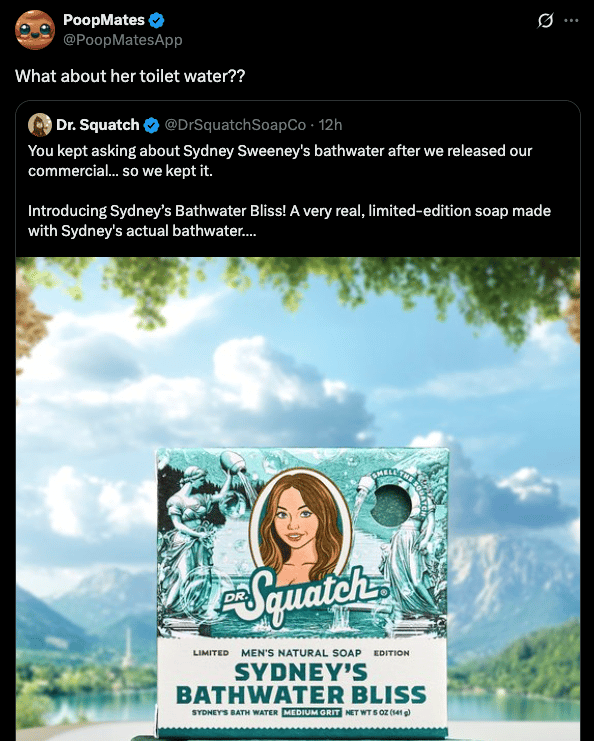
Anyways, let’s talk seed oils. I’m happy to say that the movement to avoid seed oils has been growing in popularity in recent years, but there are some misconceptions regarding them. Let’s break it down, yo!

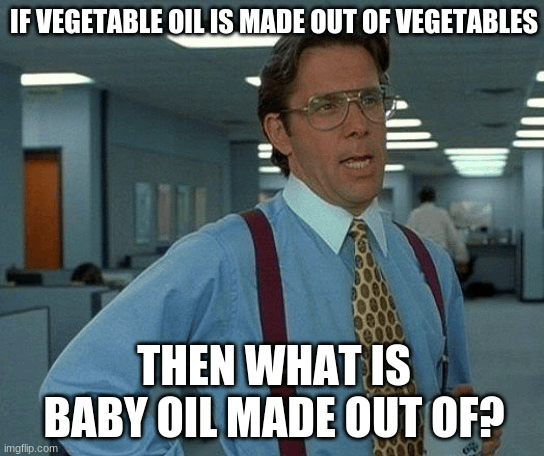
Seed oils, more commonly referred to as vegetable oils, are exactly what they sound like: oils pressed from seeds like soybeans, cotton, and sunflower. The term vegetable oil is purely a marketing spin to make them sound fresh and healthy. Gang, I’m here to tell you that this some of the most insane cap you will ever encounter.
“Vegetable Oil” Origin Story
Cotton seed oil: Cotton seed waste from cotton production was initially repurposed into soaps and candles in the late 1800s. In 1911, after further refining the cottonseed waste, Proctor & Gamble created the first ‘vegetable shortening’ and marketed it to the public under the brand name, Crisco.
Canola oil: Derived from rapeseeds, these plants were originally farmed to produce engine lubricant and lamp oil. The original varieties of these plants were too high in erucic acid, an anti-nutrient, to be safe for human consumption. Selective breeding eventually yielded varieties with lower acid levels, and soon canola-based products similar to Crisco hit the shelves.
After WWII came a massive marketing push for these repurposed byproducts, and suddenly America swapped animal fats (tallow, butter, lard) for "heart-healthy" engine lubricants like crisco, canola, soybean, corn, and peanut oil. The main sources of fat, which make up 20-30% of our daily calories, were swapped out overnight. It was one of the most radical shifts in the human diet—ever.
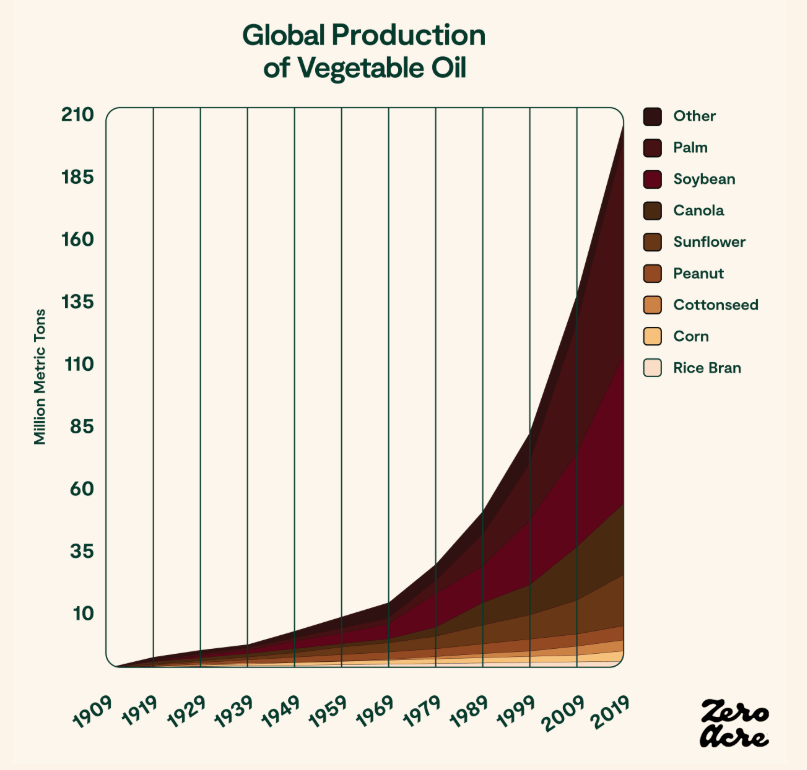
Animal fats vs Seed oils
Simply put, animal fats are primarily saturated fats, and common seed oils are primarily polyunsaturated fats. The difference lies in their chemical structure. Here’s a simplified high school level chemistry crash course on the matter:
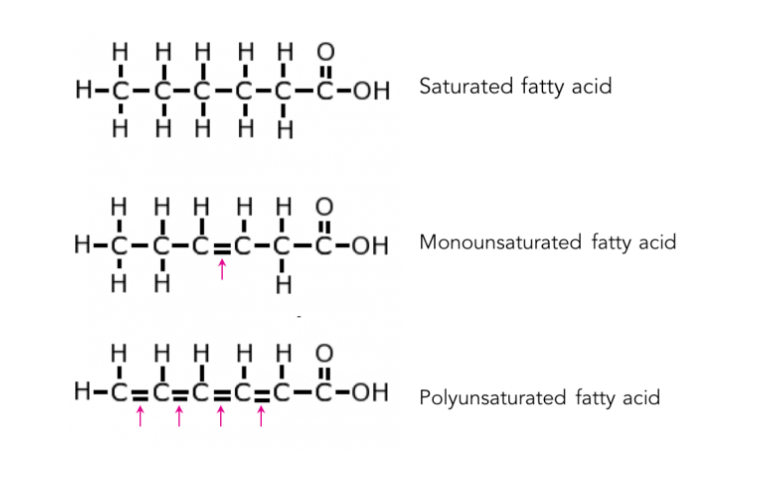
Saturated fats: All bonds between carbon atoms in the chemical structure are single carbon bonds. This is why they’re solid at room temperatures.
Unsaturated fats: Have double carbon bonds between the carbon atoms which leads them to be liquid at room temperatures.
Monounsaturated: One double bond. Mostly stable. Includes olive and avocado oil
Polyunsaturated: Multiple double bonds. This makes them very unstable. Includes common seed/vegetable oils
→ Double bonds mean the chemical structure is vulnerable to oxidation.
→ Oxidation, or oxidative stress, is a known root-cause of inflammation.
→ Chronic inflammation is the root cause of countless health issues including GI diseases, heart diseases, Alzheimer’s, and more.


If you want the best tl;dr on current events, finance, sports, and more in a daily newsletter…
Check out 1440:
Looking for unbiased, fact-based news? Join 1440 today.
Join over 4 million Americans who start their day with 1440 – your daily digest for unbiased, fact-centric news. From politics to sports, we cover it all by analyzing over 100 sources. Our concise, 5-minute read lands in your inbox each morning at no cost. Experience news without the noise; let 1440 help you make up your own mind. Sign up now and invite your friends and family to be part of the informed.

💩 Seed Oils F*ck Your Sh*t Up
Oxidized fats damage the intestinal lining. The gut lining is only one cell thick, and highly reactive oxidized lipids can weaken it, making it "leaky"
PUFAs can fuel harmful bacteria. Some studies suggest that polyunsaturated fats can promote the growth of inflammatory bacteria while suppressing beneficial microbes.
Deuterium overload → mitochondrial dysfunction. The high levels of deuterium in processed seed oils can disrupt cellular energy production in gut cells—slowing down repair, digestion, and motility.
Immune dysregulation. Your gut is home to a huge portion of your immune system. Seed oil-driven inflammation throws that system off balance, contributing to food sensitivities, IBS, and more.
🚫 Seed Oils to Avoid
The biggest offenders—found in damn near everything 😭:
Canola
Soybean
Corn
Sunflower
Safflower
Cottonseed
Grapeseed
Rice bran
These are the cheap, refined, oxidized oils used in chips, dressings, granola bars, supplements, bread, milk alternatives, baby formula, and more.

✅ Better Fats
If you have a choice, opt for these instead:
Tallow – rendered beef fat
Ghee – clarified butter with little to no lactose
Butter
Coconut oil
Olive oil*
Avocado oil*
*Be very careful of the brands you choose for these. Nothing will blackpill you faster than learning that almost all olive and avocado oil brands sell rancid or adulterated products. Read more.
The Nuance That Everyone Misses
1. PUFAs aren’t evil.
Our bodies can handle a bit of oxidative stress from PUFAs, it’s the amount and form we’re consuming that’s the problem. Historically, humans ate small amounts of polyunsaturated fats from whole foods—nuts, seeds, fatty fish—not industrial vats of soybean oil. The high-PUFA, high-oxidation, low-nutrient sh*t we consume now is a modern mutation.
2. “Seed oils = bad” is simply not true.
The problem isn’t necessarily the plant or seed itself— it’s the processing. Here’s a video from Discovery’s ‘How It’s Made’ on the production of canola oil:
Bleaching
Deodorizing
Hexane extraction
High deuterium content
Contrast this with how olive oil is made: squeeze olives.
There are also minimally-processed healthy seed oil varieties like cold-pressed sesame, black seed oil, or high-oleic sunflower oil. All clean and healthy options that I have no issues with.
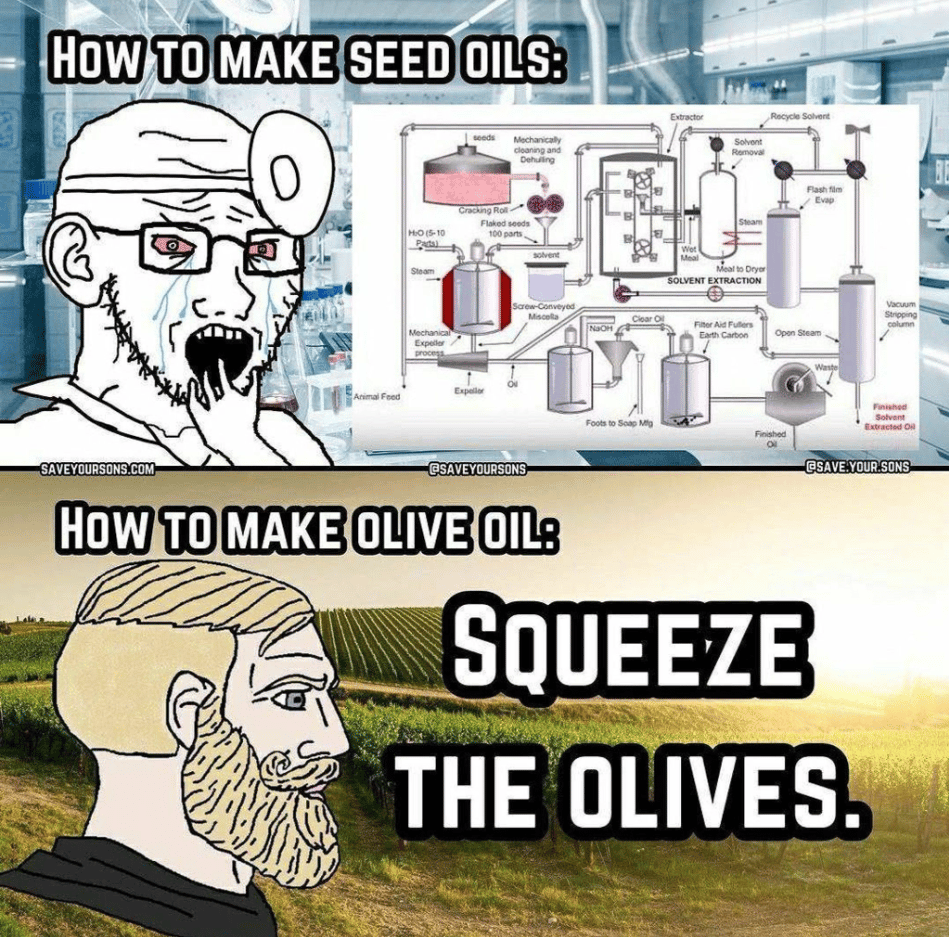
3. Even animal fats can be processed.
Most tallow products used in commercial cooking undergo a similar process to seed oils involving refining, bleaching, and deodorization, creating many of the same health concerns. BHT, a commonly used preservative banned in many countries, is also often added.
TL;DR
‘Seed oils = bad’ is true for the most part, but not entirely. But it’s WAY easier to market than the nuanced truth.
Unprocessed animals fats should make up the majority of your fat intake. They make all your food taste better too.
Pricier fruit oils like olive and avocado are more often than not rancid and adulterated with cheaper seed oils

💩 SH*TTY MEMEZ 🤣

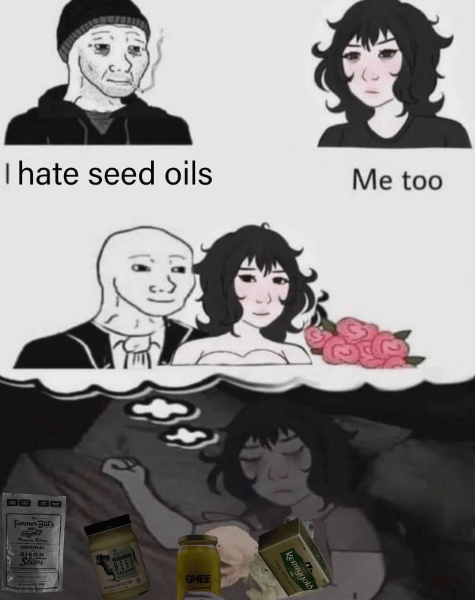


Be sure to UPDATE or download the PoopMates mobile app
Also, be sure to follow our socials for more memes and gut-health related content.
That’s all for today, PoopMates. Go, fertilize the Earth. The planet needs you.
DISCLAIMER: The content provided in this newsletter is for informational purposes only and is not intended as a substitute for professional medical advice, diagnosis, or treatment. If you are experiencing a medical emergency, call your doctor or dial 911 immediately.



